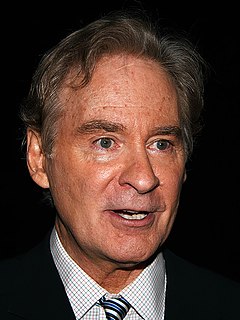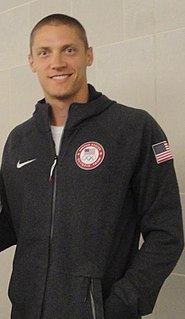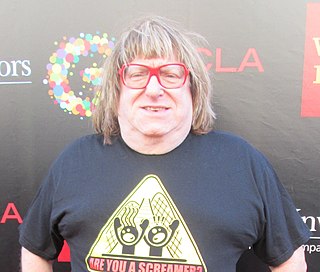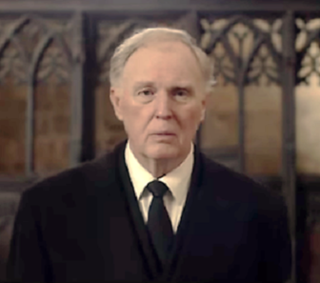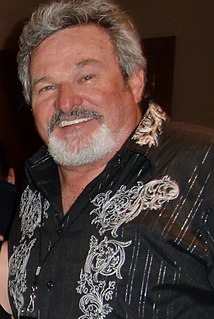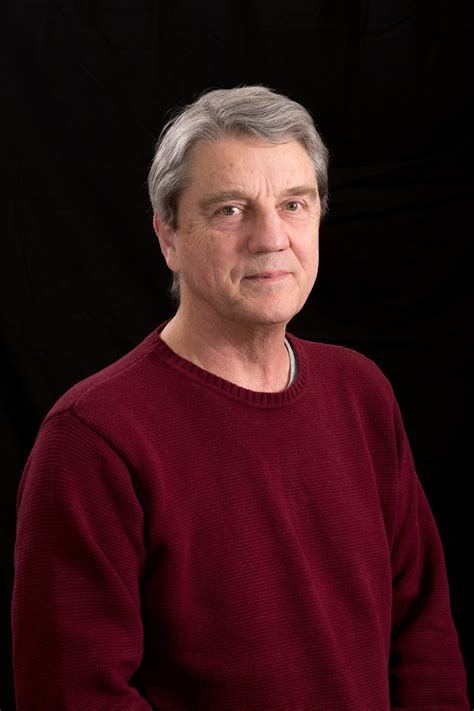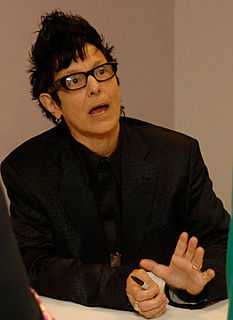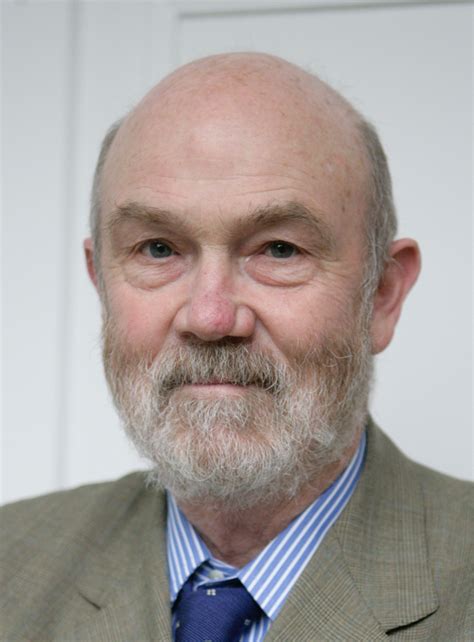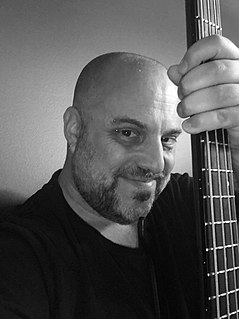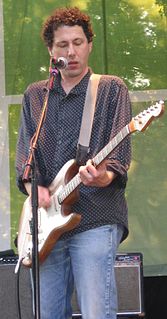Top 508 Rehearsal Quotes & Sayings - Page 9
Explore popular Rehearsal quotes.
Last updated on November 12, 2024.
You cannot begin to imagine the shock I had when I came down on the floor for the first time. First of all, there's this whole thing about playing sitcom comedy. I didn't want to do the sitcom thing, but I didn't know what else to do. I went slowly. We went through the week of rehearsal, then we got on the floor with the cameras, which I'm used to because of my experience in the old days. Then came camera day, with an audience, and it was stunning, enthralling, exciting and chaotic. I had never experienced anything like that before, as an actor. I was part minstrel, part actor.
I feel like we're between two great possibilities: we're either going to turn things around, and in this generation see the rising sun of a new moral dedication in America, or we're going to lose the struggle for that moral renewal, throw away the basic principles on which our life and civilization is based, and head toward a new century that will make the 20th century look like a dress rehearsal for evil.
We used to rehearse and that's where the roots of Dream Theater formed. Y'know, we used to play cover songs and jam to [Iron] Maiden and stuff but we were writing songs and it was this metal, loud style and we'd constantly get knocks on our door, because the rehearsal rooms were right next door to each other, and these jazz guys would be like, "Can you guys turn it down a little?"
I see a steady downward slope toward oblivion over the next three years. I'm pessimistic. Everything that's happened to me so far has been kind of flukey. I went into Twentieth Century because I wanted to work for Hal Prince. The part was too small according to my agent. I had been doing only leading parts, and he thought I should continue that. But the part was enlarged in rehearsal: songs were added, and it became more physicalized and showy. Then I won awards and got attention.
Coming at the acting business as a technician, I really enjoy the process of working. I really enjoy being in a rehearsal room, starting a theatre piece for the first time. I really enjoy shooting in front of the crew, and I really love going on location. I think all that is just so exciting. So I've never really been drawn into the fame of being an actor, which in L.A., is part and parcel of the deal. I think for a lot of people, especially kids, it's hard to not get wrapped up in the world of the perks that the job brings.
If the best way to learn to succeed is to fail as fast as possible, then the second-best way is to watch someone else fail as fast as possible. Watching someone else screw up is a kind of rehearsal for your own eventual downfall. A close observation of someone else's attempt to resolve a difficulty is a great way to acquire real-world insight into whether and when to deploy their method in your own times of trouble.
(About plan during Texas Relays) Have fun, be healthy, and enjoy the Relays for what it is. I'll just try to use the crowd and get some adrenaline and have a good time; just work on some things in this environment. This is almost a championship environment when you get down to it- with all of the fans, the energy and the adrenaline you get lining up. It's good rehearsal for the bigger stages and it's the season opener. This is the starting point. We're just looking for some starting points and to use some adrenaline to our advantage.
We're shaking up a format, which I think is always a good thing. The thing about [2011 Oscar hosts] James [Franco] and Anne [Hathaway] is, they've both hosted Saturday Night Live, and they both did a good job at it. So they are accustomed to working with short rehearsal time, and live, lots of pressure, rewrites, things like that. They can make quick changes, which is very advantageous, and they're skilled comedians.
I learned to live many years ago. Something really, really bad happened to me, something that changed my life in ways that, if I had my druthers, it would never have been changed at all. What I learned from it is that today seems to be the hardest lesson of all. I learned to love the journey, not the destination. I learned that it is not a dress rehearsal, and that today is the only guarantee you get. I learned to look at all the good in the world and to try to give some of it back because I believed in it completely and utterly.
I think Julianne Moore is very, very good. I've worked with her. We did Surviving Picasso. I remember one scene we did together. She had to have a nervous, a mental, breakdown in this one scene. I didn't have many lines. I just had to make sure I knew I came in on cue all right. And I was just watching her walking though the rehearsal. I thought I know what she's doing, "This is going to be terrific." So they said, "Are you ready" and she said, "Yeah," "Ok, roll the camera." And all in one take.
I mean I feel like we've shot all these different movies. Like the first 2 weeks of shooting was all Steve Stills apartment and band rehearsal, you know? And so it was like this tiny little group of people and small set comparatively and it just looked like a Toronto apartment. And then we sort of kept ramping up further and further until now we're here in this giant like craziest set I've ever seen with LCD crazy lights that go....you know?
I generally enjoy the rehearsal process because that's where you can share your ideas, get your thoughts and feelings out and see whether or not they're going to land, whether or not people are going to agree with them, particularly the director. So you can sort out in that process any elements that need to be sorted out before you're on the set, and of course that saves time and it also makes everyone more comfortable working together.
I remember Emilio [Estevez] and I were at John's house during the rehearsal process. And John [Huges] had mentioned he wrote the first draft of Breakfast Club in a weekend. And we both at the same time went, "First draft? How many do you have?" And John said he's got four other drafts. And we go, "Can we read them?" And for the next three hours, Emilio and I read those other four drafts.
I have to work hard and wear pants. I've worked really hard these last years, and since everything is coming together at the same time, I had to move the play back. I'm kind of in love with my theater agent. I'm a true naïve about the theater, a total innocent. He says to me, have you ever been to a rehearsal room? Do you realize you are opening at the Public in New York? You do understand that the audience will be New York theater people?
An excess of development can undermine the most ephemeral but distinctive tool a writer possesses: authorial voice. A writer's voice is as individual and marked as a thumbprint, and is a playwright's truest imprimatur. It is as innate as breathing, and can be as unique as any genetic code. By its very singular nature, it is seldom born in the act of collaboration. True authorial voice always pre-dates the first rehearsal of a text. And it is - and will always be - an author's most distinguishing and valuable feature.
I think casting is really important. Finding the right sensibility for the right part is an art in itself. If you're off there, you make it harder on yourself as a director. And it's fun to work that out with the actors. I don't think there's any magic to directing actors. It's very instinctual. Working with actors is really one of my favorite creative moments of the whole process, and the most fun, because it's collaborative. I spend a lot of time rehearsing. I'm very rehearsal-oriented, probably because I have some background in theater. I like knowing what will work beforehand.
I love the rehearsal, as long as it's not over-rehearsed. I love it when the actors can rehearse until we feel really comfortable, and then the crew come in and shoot it. I'm not especially a big fan of rehearsing with the crew and the crew rehearsing and, "Let's rehearse this tracking dolly shot 25 times until it's just right." Television has to be shot a certain way to have a certain look. And sometimes the tried-and-true method is the best.
Contrary to vulgar legend the lives of great ballerinas are not entirely given up to a few minutes of graceful movement every night followed by champagne drunk out of their toeshoes till dawn, in the company of financiers ... no, most of their time is spent in filthy rehearsal halls, inhaling dust, or else in class, daily, year in year out, practicing, practicing even after they are already prima ballerinas.
It occurred to me, then, how nearly real life resembles the first rehearsal of a play. We are all of us stumbling through it, doing our best to say the proper lines and make the proper moves, but not quite comfortable yet in the parts we've been given. Still, like players who trust that -despite all evidence to the contrary- the whole mess will make sense eventually, we keep on going, hoping that somehow things will work out for the best.
My investigation of movement has led me to choices which vary from traditional norms. My dancers and I see the rehearsal as a laboratory for testing scientific principles on the body. We invent action ideas which we think are archetypal, noticeable, understandable. The outcome is a mixture of slam dancing, exquisite and amazing human flight and a wild action sport which captures kids, older people and the general public’s hearts and minds and bodies.
Direction is the most invisible part of the theatrical art. It's not like the conductor in the symphony orchestra performance because he's standing in front of you waiving his arms. You now what he's doing. You don't know what the director is doing unless you know a lot about theater and even then you can only deduce it. You know it when you go to rehearsal. You really know it when they are rehearsing something of yours. I learned more in the rehearsals for The Letter than I have ever dreamed of know in the theater as a critic. If it doesn't make me a better critic, I'm an idiot.
There is no means of testing which decision is better, because there is no basis for comparison. We live everything as it comes, without warning, like an actor going on cold. And what can life be worth if the first rehearsal for life is life itself? That is why life is always like a sketch. No, "sketch" is not quite a word, because a sketch is an outline of something, the groundwork for a picture, whereas the sketch that is our life is a sketch for nothing, an outline with no picture.
The composer Stravinsky had written a new piece with a difficult violin passage. After it had been in rehearsal for several weeks, the solo violinist came to Stravinsky and said he was sorry, he had tried his best, the passage was too difficult, no violinist could play it. Stravinsky said, 'I understand that. What I am after is the sound of someone trying to play it.'
George Harrison: The day after the Blue Angel audition, John showed up to rehearsal with a long list of name suggestions, and I remember each and every one of them: the Deads-men, the Deadmen, the Undeads-men, the Undeadmen, the Rots, the Rotters, the Dirts, the Dirty Ones, the Grayboys, the Eaten Brains, the Eating Brains, the Mersey Beaters, the Mersey Beaten, the Bloodless, the Graves, the Headstones, and the Liverpools of Blood. Paul ripped off John's right arm and used it to slap John across the face, then he said, "Those're horrible, mate, just horrible, y'know.
One of the things on a very practical level as an actor or actress is that when you do a play, you do the entire story every time you do it. You have eight shows a week. You have a rehearsal process of four to five to six weeks. And then once you're in performance, everybody else goes away and you're there with your fellow actors and the audience and the material and your life becomes about that. And you go through the story from the beginning to the end every time you do it and depending on how long you do it, that's where the craft comes in.
In terms of performance, something unexpected is always good, it's preferable if it's unexpectedly good. But unexpectedly bad has a lot to say for it as well. It's always nice to be able to look back on a show and say, "Oh, that's the night that this happened," and a lot of the worst memories are better than the shows with no memories. A good rehearsal is a lot harder to describe. A lot of rehearsals that end up feeling best are the ones where something really bad was happening, and you just kind of got past it and fought through it. Just dealing with things that are inevitable.



